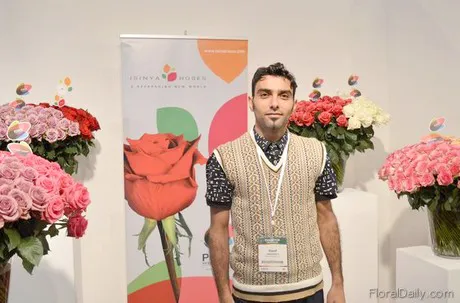
Hanif Chaudry at the IFTF 2016 in Vijfhuizen, the Netherlands.
Decreased prices
Over the years, the production of flowers, and roses in particular, increased in Ethiopia and this development is, especially this year, affecting the Kenyan flower growers. Due to the increased amount of flowers on the market, the prices at the Dutch auction decreased compared to last year. "They are now about 20 percent lower", says Chaudry.
Duty
This situation hits both the Kenyan and Ethiopian farms. However, according to Chaudry, the Kenyan farms are hit harder as they cannot handle these lower prices as well as the Ethiopian farms. "They do not have to pay duty. And this is one of the main reasons which enables them to sell their flowers for cheaper prices", he says.
Dealing with it
And how are Kenyan farms dealing with this development? According to Chaudry, many Kenyan farms moved to Ethiopia, especially since last year. Isinya Roses, however, is not planning to move its operations. "For us it is still profitable to produce and sell our flowers from Kenya, but we decided to increase our direct sales as these prices are often higher than on the auction. We try to create a balance between the direct and auction sales." Currently, Isinya Roses supplies about 50 percent of their production volume directly and 50 percent to the auction. Their main markets are Europe, the Middle East and Russia.
For more information
Isinya Roses

Hanif Chaudry
Email: info@isinyaroses.com
www.isinyaroses.com
